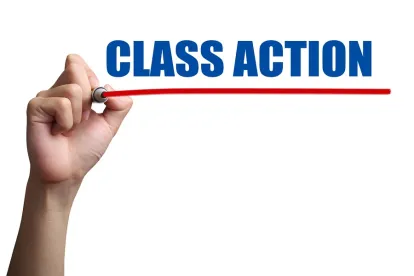Last week brought another decision from the Northern District of Illinois holding that Bristol-Myers Squibb Co. v. Superior Court of California, 137 S. Ct. 1773 (2017), applies to class actions pending in federal court, and as result, the court held that it lacked personal jurisdiction over the nonresident defendant (Holiday Cruise Line) as to the TCPA claims of residents outside of Illinois. See Bakov v. Consol. World Travel, Inc., 2019 U.S. Dist. LEXIS 46510 (N. Ill. Mar. 21, 2019). In so holding, the court rejected plaintiffs’ waiver argument and excused Holiday’s failure to raise the jurisdictional objection in its initial response. The court, however, went on to consider whether to certify a class of Illinois residents. After addressing various challenges to both plaintiffs’ and defendant’s expert testimony, the court certified a class of Illinois residents.
The lawsuit involves a challenge to prerecorded calls made by a third party to market a Holiday cruise. The purported class included “all persons in the United States.” As a preliminary matter, the court considered whether it had personal jurisdiction over Holiday to certify a nationwide class. It found it did not. First, there was no general jurisdiction because Holiday is incorporated under Florida law with its principal place of business in Florida. The court then found that pursuant to Bristol-Myers, it lacked specific jurisdiction over Holiday with respect to the nonresident class members’ TCPA claims. The court expressly followed earlier decisions from the Northern District of Illinois, holding that Bristol-Myers applies in federal court and applies to class actions. Acknowledging that Holiday failed to raise its personal jurisdiction defense in its motion to dismiss, the court excused this failure, again following earlier decisions from the Northern District of Illinois.
As to class certification, the court first addressed the parties’ challenges to each side’s expert testimony. The court rejected plaintiffs’ challenges to Holiday’s expert, Ken Sponsler, finding that his testimony was admissible under Federal Rule of Civil Procedure 702 and that plaintiffs’ challenges amounted to nothing more than a disagreement with Mr. Sponsler’s testimony or went to the weight (not the reliability) of the testimony. Holiday challenged plaintiffs’ three experts. As to the first – Colin Weir – the court concluded that testimony from a data analysis expert would assist the jury and that Mr. Weir’s methodology was reliable. However, with respect to plaintiffs’ second expert – Randall Snyder – the court concluded that his opinion that the calls were prerecorded is inadmissible for lack of sound methodology and that such testimony was unlikely to assist the jury. The court also excluded Mr. Snyder’s opinion (identifying class members through telephone numbers) because he “derived this opinion through his exposure to and observance of a process utilized by” another firm retained by plaintiffs to identify class members. Finally, as to plaintiffs’ third expert (from the firm plaintiffs retained to identify class members) – Christina Peters-Staziweicz – the court allowed her testimony, finding that her proffered methodology for identifying class members had previously been found by other courts to be an acceptable method and that challenges to its reliability are matters to be explored on cross-examination.
The court then turned to the four prerequisites of Rule 23(a), the requirements of Rule 23(b), and ascertainability. As the court noted, “[t]he central theme of [Holiday’s] opposition to class certification is questioning the validity of Plaintiffs’ proposed method of class member identification.” Ultimately, the court disagreed with Holiday’s contention that class members should not be permitted to “self-identify” through affidavits in the absence of objective records, finding that the Seventh Circuit has determined that courts should not decline certification because a plaintiff’s proposed method for identifying class members relies on affidavits. Thus, the court granted plaintiff’s motion for class certification, in so far as the class is limited to Illinois residents.
As those of us who inhabit TCPAworld know, there is disagreement amongst courts across the country on the Court’s two central rulings in this case – that is, whether Bristol-Myers applies to class actions and whether TCPA classes based on self-identifying affidavits in the absence of objective records can be certified. Both issues will eventually work their way to the appellate courts, so stay tuned. In the meantime, for those of us who defend TCPA class actions, make sure to develop and timely raise both defenses.




 />i
/>i

